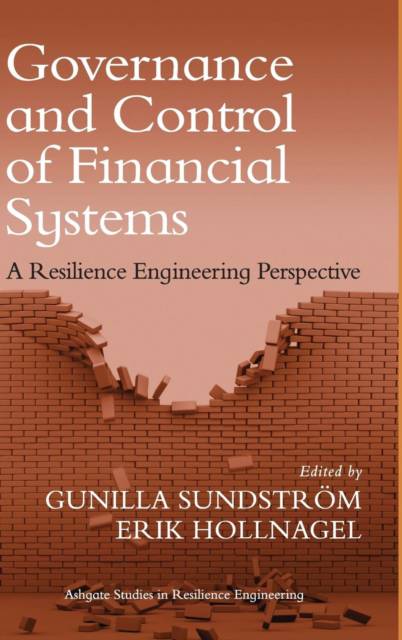
- Retrait gratuit dans votre magasin Club
- 7.000.000 titres dans notre catalogue
- Payer en toute sécurité
- Toujours un magasin près de chez vous
- Retrait gratuit dans votre magasin Club
- 7.000.0000 titres dans notre catalogue
- Payer en toute sécurité
- Toujours un magasin près de chez vous
Governance and Control of Financial Systems
A Resilience Engineering Perspective
Gunilla Sundstrom, Erik Hollnagel
305,45 €
+ 610 points
Format
Description
The recent financial crisis has made it paramount for the financial services industry to find new perspectives to look at their industry and, most importantly, to gain a better understanding of how the global financial system can be made less vulnerable and more resilient. The primary objective of this book is to illustrate how the safety science of Resilience Engineering can help to gain a better understanding of what the financial services system is and how to improve governance and control of financial services systems by leveraging some of its key concepts. Resilience is the intrinsic ability of a system to adjust its functioning prior to, during, or following changes and disturbances, so that it can sustain required operations under both expected and unexpected conditions. This definition is focused on the ability to function, rather than just to be impervious to failure, and thereby bridges the traditional conflict between productivity and safety. The core concept of the book is that the behaviour of the financial services system is the result of the tight couplings among the humans, organizations and technologies that are necessary to provide complex financial functions such as the transfer of economic resources. It is a consequence of this perspective that the risks associated with these systems cannot be understood without considering the nature of these tight couplings. Adopting this perspective, the book is designed to provide some answers to the following key questions about the financial crisis: - What actually happened? - Why and how did it happen? - Could something similar happen again? How can we see that in time and how can we control it? - How can sustainable recovery of the global financial system be established? How can its resilience be improved?
Spécifications
Parties prenantes
- Auteur(s) :
- Editeur:
Contenu
- Nombre de pages :
- 216
- Langue:
- Anglais
- Collection :
Caractéristiques
- EAN:
- 9781409429661
- Date de parution :
- 28-09-11
- Format:
- Livre relié
- Format numérique:
- Genaaid
- Dimensions :
- 156 mm x 234 mm
- Poids :
- 480 g

Les avis
Nous publions uniquement les avis qui respectent les conditions requises. Consultez nos conditions pour les avis.






